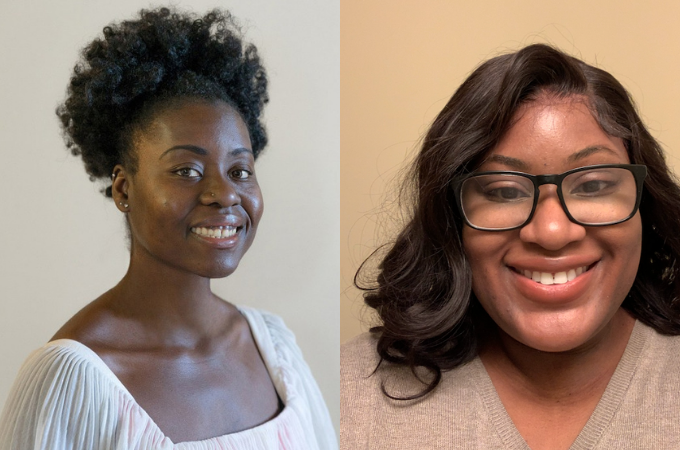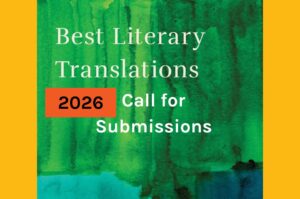
The 2021 Aidoo-Snyder Book Prize committee has selected two winners for best scholarly work. The award recipients are Nigerian academic Oluwakemi Balogun and Cameroonian academic Jacqueline-Bethel Tchouta Mougoué.
The Aidoo-Snyder book prize is awarded by the Women’s Caucus of the African Studies Association for an outstanding book that prioritizes African women’s experiences. Named in homage of Ghanian novelist and short story writer Ama Ata Aidoo and Margaret Snyder, the founding Director of UNIFEM, the $500 prize acknowledges the excellence of contemporary scholarship being produced by women about African women. The prize alternates between awarding the best scholarly book and the best creative work. Nigerian novelist and poet Jumoke Verissimo won the creative writing prize last year.

Mougoué is an Assistant Professor of African Cultural Studies at the University of Wisconsin-Madison. Her work “centers on the gendering of identities in Africa.” She won the prize for her book Gender, Separatist Politics, and Embodied Nationalism in Cameroon. The book looks ideas of womanhood and post-independence nation formation. Read the publisher’s description of the book:
“Gender, Separatist Politics, and Embodied Nationalism in Cameroon illuminates how issues of ideal womanhood shaped the Anglophone Cameroonian nationalist movement in the first decade of independence in Cameroon, a west-central African country. Drawing upon history, political science, gender studies, and feminist epistemologies, the book examines how formally educated women sought to protect the cultural values and the self-determination of the Anglophone Cameroonian state as Francophone Cameroon prepared to dismantle the federal republic. The book defines and uses the concept of embodied nationalism to illustrate the political importance of women’s everyday behavior—the clothes they wore, the foods they cooked, whether they gossiped, and their deference to their husbands. The result, in this fascinating approach, reveals that West Cameroon, which included English-speaking areas, was a progressive and autonomous nation. The author’s sources include oral interviews and archival records such as women’s newspaper advice columns, Cameroon’s first cooking book, and the first novel published by an Anglophone Cameroonian woman.”

Balogun is an Associate Professor in Women’s & Gender Studies and Sociology at the University of Oregon. Her work centers on identity formation in relation to immigration and nationalism in Nigeria and the Diaspora. She won the prize for her book Beauty Diplomacy: Embodying an Emerging Nation. The book is published by Stanford University Press and looks at the underlying ideas about gender, class, and citizenship in Nigerian pageant culture.
Even as beauty pageants have been critiqued as misogynistic and dated cultural vestiges of the past in the US and elsewhere, the pageant industry is growing in popularity across the Global South, and Nigeria is one of the countries at the forefront of this trend. In a country with over 1,000 reported pageants, these events are more than superficial forms of entertainment. Beauty Diplomacy takes us inside the world of Nigerian beauty contests to see how they are transformed into contested vehicles for promoting complex ideas about gender and power, ethnicity and belonging, and a rapidly changing articulation of Nigerian nationhood. Drawing on four case studies of beauty pageants, this book examines how Nigeria’s changing position in the global political economy and existing cultural tensions inform varied forms of embodied nationalism, where contestants are expected to integrate recognizable elements of Nigerian cultural identity while also conveying a narrative of a newly-emerging, globally-relevant Nigeria. Oluwakemi M. Balogun critically examines Nigerian pageants in the context of major transitions within the nation-state, using these events as a lens through which to understand Nigerian national identity and international relations.









COMMENTS -
Reader Interactions